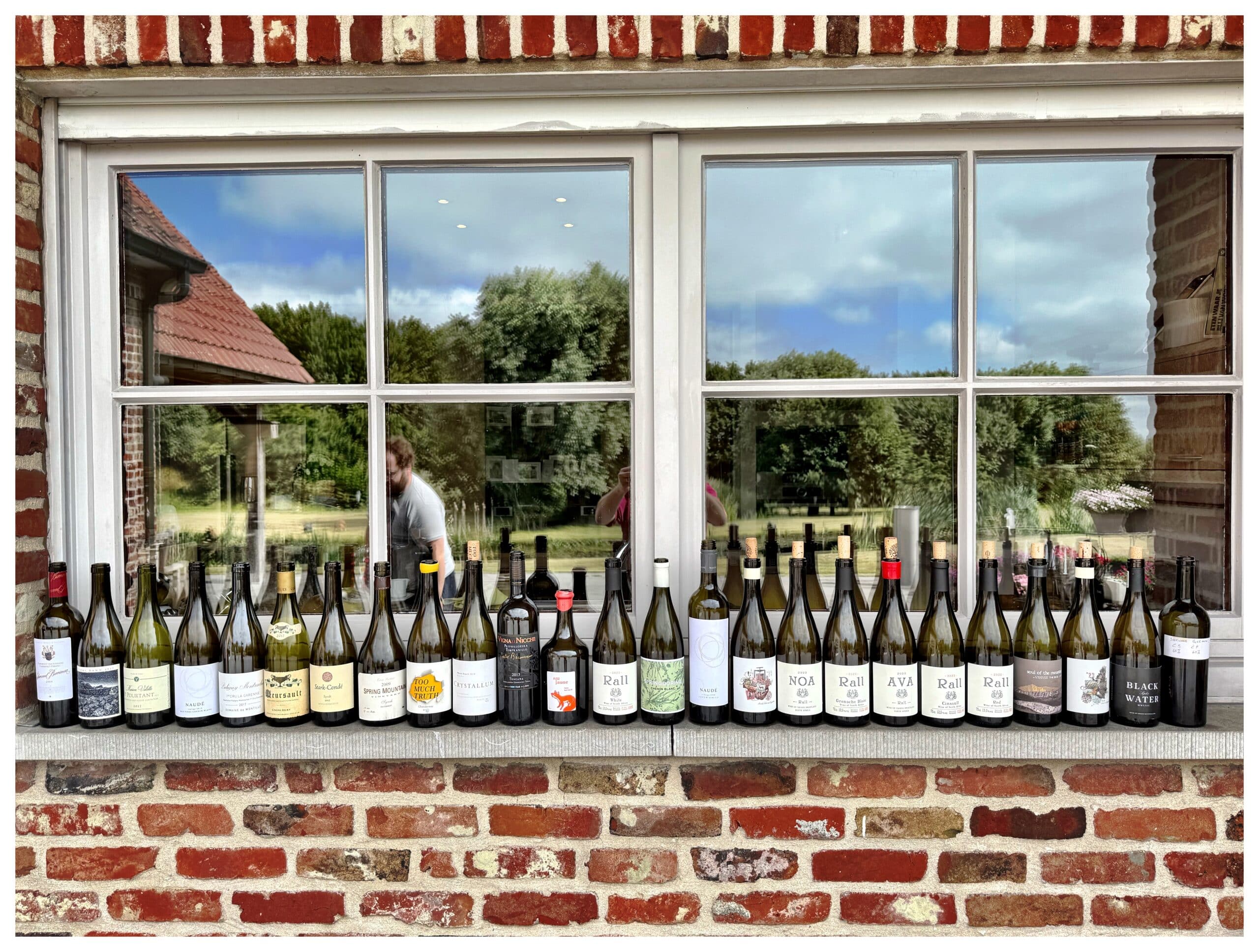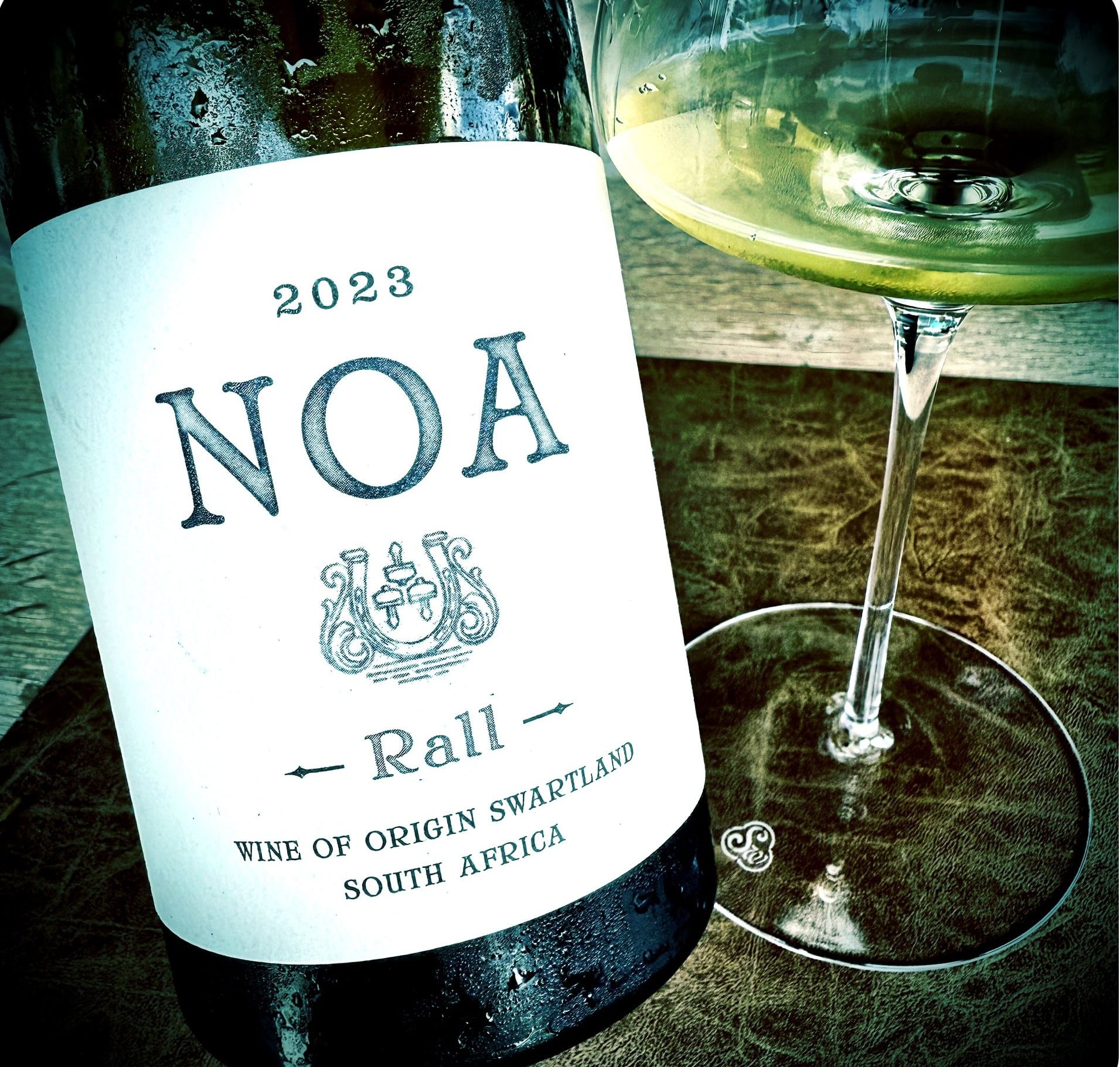
Let’s be clear, I like a fun festive wine tastings as much as the next wine lover, but rarely do I jump into my car to drive over four hours to Belgium for a day and a night to taste wine. But this is exactly what I did this past week as I accompanied several other wine lover / collector friends to join wine importer extraordinaire, Luc Vannevel in Passchendaele, Flanders, to taste some delicious wines and eat some delightful food.
Luc Vannevel, our generous host, is the CEO of Elvama Wines, who must surely be one of the most important wine importers in Belgium focusing exclusively on South African wines. Working together with his son Sebastian, a PhD graduate in oenology from Stellenbosch, and daughter Margaux, Elvama BV exclusively represent illustrious Cape producers such as Constantia Glen, Draaiboek, Le Riche, Luddite, Minimalist, Muratie, Newton Johnson, Rall, Van Loggerenberg and Winshaw to name but a few.
So aside from being guaranteed some delicious wines over the weekend, as you would expect, the conversations over said wines were also incredibly interesting and enlightening especially when coming from a non-UK perspective. While Luc focuses exclusively on South African wines for his import business, his contacts among Bordeaux, Burgundy and ‘other’ fine importers is substantial, allowing him to accumulate an impressive cellar filled with fine wine treats from around the world’s great regions.
With so much of the past year’s industry chatter focused on the faltering global fine wine market, I was especially keen to hear Luc’s perspective on the current challenges we all seem to be navigating. I travel to France regularly and often hear producers’ tales of woe firsthand, but I was curious to gain a more nuanced understanding of the Belgian market – famously devoted to Bordeaux, Bordeaux, and more Bordeaux.
Unsurprisingly, the situation on the ground in Belgium seemed to mimic the wider market conditions we see in not only the UK but across the whole of Europe, namely falling consumption, a reluctant next generation of drinkers, incredible price sensitivity, and a fast-reducing consumer base for all wine importers.
South African wines have always been fairly popular across the Benelux nations of Belgium, Netherlands and Luxembourg, especially considering the historical language and cultural ties, but it is only when you hear about the catastrophic implosion of Bordeaux wine consumption and sales in Belgium that you start to understand the full extent of the problems the wine industry faces.
As Luc explained, it is now quite common to walk into a 60-seater restaurant for a mid-week lunch only to find one table with a bottle of wine and maybe one or two other tables with a single glass of wine, with the rest either drinking perhaps beer or more likely water. A rather striking fact, considering the Dutch have traditionally taken a more utilitarian approach to food, while the Belgians have clearly inherited France’s flair, passion, and joie de vivre for fine dining and fine wine – even in everyday situations.
For Luc and his family, their business focus will remain primarily on selling to independent merchant retailers as well as large private client buyers, many of whom Luc regularly takes on wine trips to the Cape several times per year. This business is intimate, personal and based on relationships, something that Luc says has become increasingly important in recent years as the wider market has continued to contract.
South African wine may remain somewhat of a niche sell in the Francophile-centric wine market of Belgium, but with Bordeaux becoming almost unaffordable and sales continuing to collapse, new opportunities continue to reveal themselves for well-priced, high quality South African producers offering wines that clearly over deliver in the consumers’ mind.
Once again, when multiple micro and macro factors are distilled down, much of the inertia and reluctance expressed by the next generation of wine consumers can simply be linked to the unaffordability of so many fine wines available on the market. I say it over and over, but I really do believe that wine market analysts hugely underestimate this simple fact.
To quote esteemed Dutch Master of Wine Frank Smulders, “I think way too many ‘good wines’ have become way too expensive in the past two decades. It infuriates me that not a single wine-writer / wine critic dares to tell his readers not to buy all these highly overpriced wines. Actually, it is quite the reverse: the higher the price, the higher the points. And no, this is not a comment on Bordeaux or Burgundy only. So, I think that the current ‘overpricing model’ is not economically sustainable (anymore).”
For me, and of course most of the South African wine industry, the only really important question that remains is to what extent South Africa’s premium producers will be dragged down into the suffocating whirlpool of a collapsing wider global fine wine market? For the moment, we can only hypothesize and prepare for the worst but hope for the best.
Ending on a note of optimism… Luc was generous enough to open up almost the full range of newly arrived 2023 wines from Donovan Rall, a producer that he says has really captured the imagination of consumers in Belgium and sells incredibly well, being perceived as a premium brand, incredibly high quality, uniquely South African yet also very limited in availability. A brand that has made the most of an emerging fine wine opportunity in a mature but ever evolving market.
My brief tasting notes and scores were as follows:
Rall Grenache Blanc 2023 @ 94+/100 GSMW
A beautifully fresh wine at 12.5% abv that includes a portion of fruit from Kloovenburg and Piekenierskloof, shows a rich complex array of pithy yellow citrus, white blossom, finishing with a notable granitic minerality.
Rall White 2023 @ 96/100 GSMW
A blend of 71% Chenin Blanc, 26% Verdelho and 3% Viognier matured for 10 months. This is an incredibly alluring wine, fabulously complex with white peach, lemon pastille, wet straw and a subtle fynbos herbal spice. This was one of the first bottles to be finished off by drinkers! Superb effort.

Rall Noa Chenin Blanc 2023 @ 96+/100 GSMW
Made from grapes from a Paardeberg single vineyard grown on deep decomposed granite, this wine is intense, rich and concentrated, but also beautifully cool and fresh with a pronounced mineral undertone, deliciously tangy acids and a long, linear, mineral finish. An incredibly accomplished expression of Chenin Blanc.
Rall Ava Chenin Blanc 2023 @ 97/100 GSMW
Another of Donovan’s single vineyard wines, this shows a hint of barrel spice with a rich, creamy mid-palate and a fleshy depth of fruit. Glycerol, leesy and slightly savoury, finishing with bright tangy acids and delicious yellow orchard fruit persistence.
Rall Cinsault 2023 @ 94+/100 GSMW
A beautifully ripe, expressive Cinsault with fabulous depth at only 12.5% abv. With 75% of the grapes from Darling and 25% from Swartland, the wine is bursting with super bright crunchy red and black berry fruits yet remains crisp, light on its feet and delicious when served slightly chilled. This bottle also didn’t last very long!
Rall Red 2022 @ 94/100 GSMW
A classy blend of 78% Syrah, 12% Grenache, 7% Carignan and 3% Cinsault, and like Columella from Sadie, this wine is released a year later. The aromatics of full of black berries, savoury cured meats, sweet herbs, fynbos and black peppercorn spice. Acids are crisp and fresh, the palate concentrated yet elegantly weightless and accessible with a long finish.
Rall Ava Syrah 2023 @ 96/100 GSMW
Donovan’s flagship red grown on Schist soils showed a rich, complex, detailed palate with power and focus. Fragrantly perfumed with violets and lavender, fynbos, bramble berries and bresaola cured meat notes. Polished yet powerful, intense and structured finishing with elegance and purity. A true fine wine class act.
It is certainly not a given that all South African fine wine is going to go down with the fine wine Titanic, and for once, the Cape’s slightly simplistic, unnuanced image of being good value, even at the premium end of the scale, may actually prove to be a secret blessing in disguise.
Greg Sherwood was born in Pretoria, South Africa, and as the son of a career diplomat, spent his first 21 years traveling the globe with his parents. With a Business Management and Marketing degree from Webster University, St. Louis, Missouri, USA, Sherwood began his working career as a commodity trader. In 2000, he decided to make more of a long-held interest in wine taking a position at Handford Wines in South Kensington, London, working his way up to the position of Senior Wine Buyer over 22 years. Sherwood currently consults to a number of top fine wine merchants in London while always keeping one eye firmly on the South African wine industry. He qualified as the 303rd Master of Wine in 2007.

